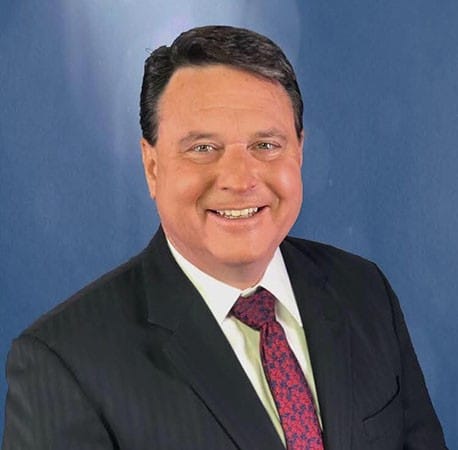
By Marilyn Odendahl
The Indiana Citizen
July 19, 2025
The Indiana Supreme Court has denied Indiana Attorney General Todd Rokita’s motion to dismiss the second disciplinary complaint pending against him but has granted his request to appoint a three-judge panel to preside over this matter.
Issued Friday, the majority opinion also encouraged the attorney general and the Indiana Supreme Court Disciplinary Commission to see if they can reach a resolution to this complaint through mediation. The majority noted that in the “already voluminous” pleadings, the parties disagree vehemently, but they have few differences about the facts of this case.
“At bottom, they agree about what (Rokita) said; they disagree about what he thought and meant,” Justice Derek Molter wrote for the majority. “And as both sides describe the dispute, it seems to boil down primarily to whether (the attorney general) really meant it when he told us he was accepting responsibility for violating the Rules of Professional Conduct.”
Chief Justice Loretta Rush and Justice Mark Massa joined the opinion. In separate concurring opinions, Justice Geoffrey Slaughter asked whether the court should consider further professional sanctions, while Justice Christopher Goff expressed concern that mediation might be used as a way to get around the disciplinary process.
The matter has now been turned over to the court-appointed panel and Rokita has been given 30 days to file his answer to the disciplinary commission’s complaint.
Rokita’s office did not respond to a request for comment.
Rokita had requested his case be heard by a panel, rather than a single hearing officer, because of his concerns about political bias. Noting the extra hearing officers will create an additional expense that the attorney general will have to pay if he is found to have violated the rules of attorney conduct, the justices appointed Judges Cale Bradford and Nancy Vaidik, who have sat on the Court of Appeals of Indiana bench since 2007 and 2000, respectively, and Evansville attorney William Hussmann Jr., who has served as a U.S. Magistrate Judge, a deputy attorney general and staff attorney for the Indiana Disciplinary Commission, to preside over the case.

The second disciplinary complaint stems from the public statement Rokita made after the first disciplinary complaint against him was resolved by a conditional agreement for a public reprimand. Rokita was disciplined in the first complaint for speaking publicly about his office’s investigation into Dr. Caitlin Bernard, an Indianapolis OB/GYN who had performed a legal abortion on a 10-year-old rape victim from Ohio. He said on national television that Bernard was an “abortion activist acting as a doctor” and said that she had “a history of failing to report” the abortions she performed as required by state law.
In the first disciplinary case, Molter, Massa and Slaughter voted to accept the agreement. Rush and Goff voted against it, indicating Rokita should have faced harsher discipline.
As part of the conditional agreement, Rokita signed an affidavit acknowledging he could not have defended himself against the misconduct charges. However, within hours of a divided Supreme Court issuing the reprimand, with the majority saying Rokita had accepted responsibility for his actions, the attorney general released a statement claiming, in part, that he “was not found to have violated anyone’s confidentiality or any laws” but decided not to fight the charges in order to save the taxpayers money.
The commission asserted Rokita’s post-reprimand statement shows he was not truthful with the Supreme Court when settling his first disciplinary complaint.
In his motion to dismiss, Rokita alleged the second complaint against him is politically motivated and he countered that his statement did not contradict the conditional agreement or affidavit. In particular, he noted the commission dismissed the previous charge that he had violated confidentiality laws when talking about Bernard and that he did not say he could have defended himself against the charges successfully.
Also, Rokita asserted this disciplinary action is suppressing his constitutional right to free speech. The commission argued the question is whether the attorney general was candid with the Supreme Court and that attorneys do not have a constitutionally protected right to make false statements to courts.
The majority opinion did not reach any conclusion about Rokita’s assertion, but it did deny his motion to dismiss without prejudice so he can raise those arguments to the disciplinary panel.
Noting the commission and the attorney general agree on several key points in this case, the majority said “with help from a mediator, (the parties) might at least explore whether they can get back on the same page.” Also, the majority advised that the commission and Rokita might also consider establishing the parameters for any post-disciplinary statements if they do reach an agreement. While Rokita has bristled that any such “gag order” could limit his right to free speech when talking to his constituents, the majority echoed the commission in asserting it was not seeking to impinge on his constitutional rights.
“But beyond the First Amendment, there is also the first rule of holes: when you’re in one, stop digging,” Molter wrote, citing to the Indiana Court of Appeals’ 2021 ruling in Minser v. DeKalb County Planning Commission. “And when our state’s highest court must enlist our profession’s most respected leaders as hearing officers to litigate at considerable expense whether our state’s attorney general was sincere when saying sorry, we’re in a hole – so we should all do what we can at least to stop making things worse.”
In his concurring opinion, Goff raised concerns that by encouraging mediation, the disciplinary process could be altered so that it no longer applies equally to the solo practitioner and “a powerful statewide office holder.” Still, he supported directing the hearing officers to consider mediation as a way to resolve this case.
“In my view, the chief benefit of this approach would be cost savings,” Goff said of reaching an agreement through mediation. “Hoosier taxpayers have reportedly already spent hundreds of thousands of dollars on legal fees to defend (Rokita) against allegations of professional misconduct.”
Slaughter used his concurring opinion to argue that the Supreme Court should have first held a hearing before rendering a decision on the motion to dismiss. The court could then have considered whether a further professional sanction against Rokita is now warranted.
“If the (attorney general) did not ‘really’ mean it – if he crossed his fingers behind his back – when he accepted responsibility for violating our professional-conduct rules the first time, should we find yet another violation this time?” Slaughter asked.
The case is In the Matter of Theodore E. Rokita, 25S-DI-29.
Dwight Adams, an editor and writer based in Indianapolis, edited this article. He is a former content editor, copy editor and digital producer at The Indianapolis Star and IndyStar.com, and worked as a planner for other newspapers, including the Louisville Courier Journal.
The Indiana Citizen is a nonpartisan, nonprofit platform dedicated to increasing the number of informed and engaged Hoosier citizens. We are operated by the Indiana Citizen Education Foundation, Inc., a 501(c)(3) public charity. For questions about the story, contact Marilyn Odendahl at marilyn.odendahl@indianacitizen.org.